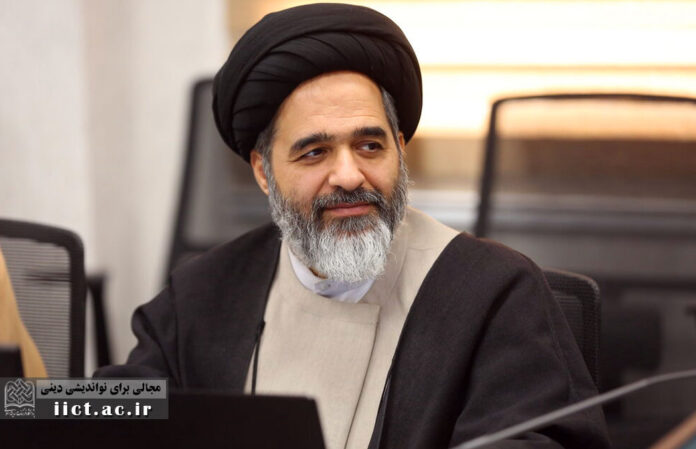According to the Public Relations Office of the Research Institute for Islamic Culture and Thought, in recognition of three decades of scholarly effort in the field of Islamic political thought, the conference “Performance Report of the Politics Group” was held on Wednesday, December 11, 2024.
The event was organized by the Politics Group of the Institute in collaboration with the Institute of Political Science and Thought of the Islamic Sciences and Culture Research Institute, the Seminary and University Research Institute, the Arbaeen Cultural Committee (Abarat), and the Seminary’s Association of Political Studies, both in-person and virtually.
Hujjat al-Islam Dr. Seyyed Sajjad Izdehi, Head of the Islamic Systems Research Institute, stated that “At present, there are approximately over fifty faculty members at the Research Institute for Islamic Culture and Thought, twelve of whom are full professors. I don’t mean to say that these individuals wouldn’t have achieved this success elsewhere, but the reality is that the environment, resources, and colleagues play a significant role in progress. One of the remarkable aspects we observe in the Research Institute is the humane and compassionate atmosphere within the scientific space. Specifically, in the Politics Group of the Institute, although the members operate rigorously and combatively in scientific discussions, this environment exists.”
The professor of the Politics Group at the Islamic Systems Research Institute continued, “Our goal in the Politics Group’s performance report was to hold and review 500 sessions in the Scientific Council. Significant activities have already been carried out, but despite this, they have yet to extend beyond the Qom Seminary and become a public discourse. As of now, we still lack a discourse on political ethics.”
Shiite Thought and Jurisprudence Must Be Presented to the Islamic World in Diverse Formats
He further added, “This year, we have conducted at least forty sessions in the field of Resistance Jurisprudence. This human capital within the seminary and academic body is actively working. At present, within the Islamic world, the topics of revolutionary thought, leadership, and Shiite jurisprudence are critical and highly relevant. However, we have not yet managed to transform this thought into tangible products that can be presented to those who are not in our close and near circle.”




